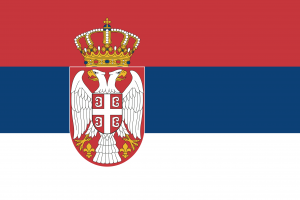Language/Serbian/Grammar/Conditional-Mood
Hi Serbian learners! 😊
In today's lesson, we will be discussing the conditional mood in Serbian grammar. This is an important part of the language and understanding it will help you to communicate more effectively. We will look at how to form the conditional mood, when to use it, and some examples of its usage.
Take some time to dive into these other pages after completing this lesson: Comaratives and Superlatives, Serbian language has 3 genders, 0 to A1 Course & Future Tense.
What is the Conditional Mood?[edit | edit source]
The conditional mood is used to express a hypothetical situation or a wish. It is also used to express politeness and to make polite requests. In Serbian, the conditional mood is formed by adding the suffix -ло/-ла/-ло to the verb stem. For example, the verb “to go” (идти) becomes ишло (I would go).
When to Use the Conditional Mood[edit | edit source]
The conditional mood is used in a variety of situations. It can be used to express a hypothetical situation, such as “If I had more time, I would go to the beach.” It can also be used to express a wish, such as “I wish I could go to the beach.” It can also be used to make polite requests, such as “Could you please help me?”
Examples of the Conditional Mood[edit | edit source]
Here are some examples of the conditional mood in action:
- Ако бих имал време, ишло бих на плажу. (If I had time, I would go to the beach.)
- Желео бих да одим на плажу. (I wish I could go to the beach.)
- Могли би да ми помогнете? (Could you please help me?)
Conclusion[edit | edit source]
In conclusion, the conditional mood is an important part of Serbian grammar. It is used to express a hypothetical situation, a wish, or a polite request. By understanding how to form and use the conditional mood, you will be able to communicate more effectively in Serbian.
If you have any questions, please ask them in the comments section below.
Feel free to edit this wiki page if you think it can be improved. 😎
Other Lessons[edit | edit source]
- How to Use Be
- Negation
- Pronouns
- Nouns
- Prepositions
- Present Tense
- Give your Opinion
- Comaratives and Superlatives
- Past Tense
- Future Tense
Sources[edit | edit source]

